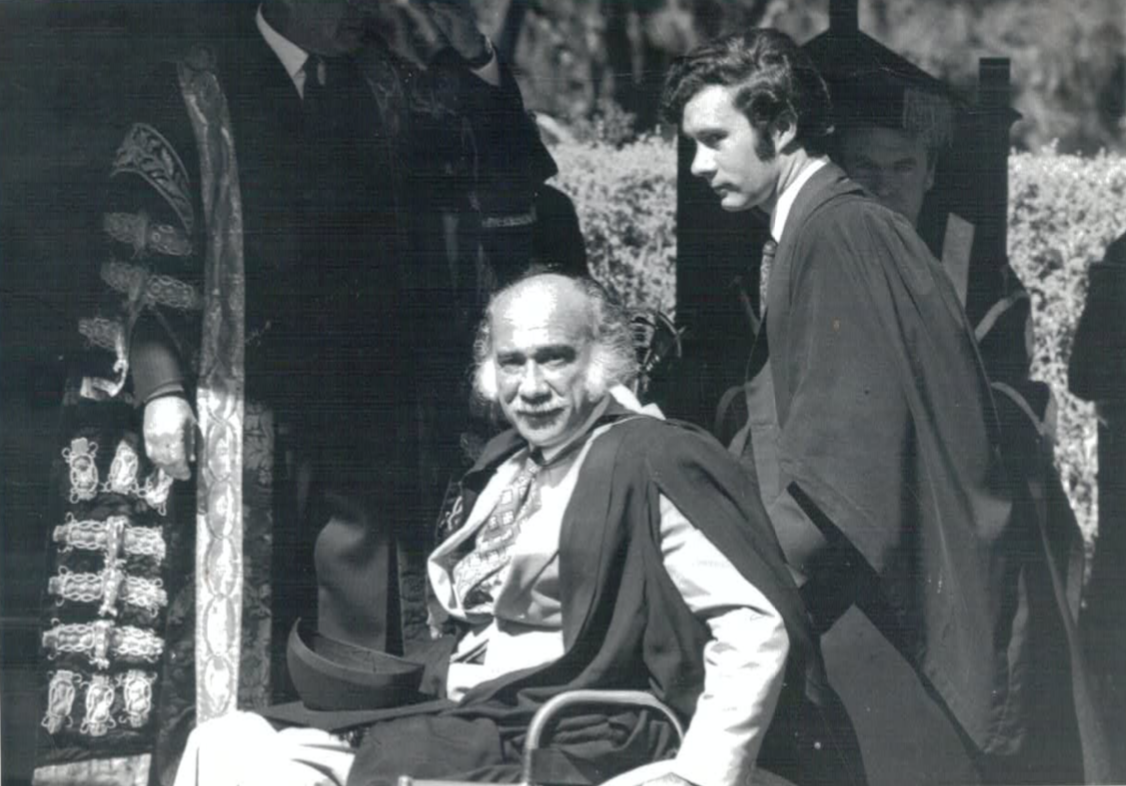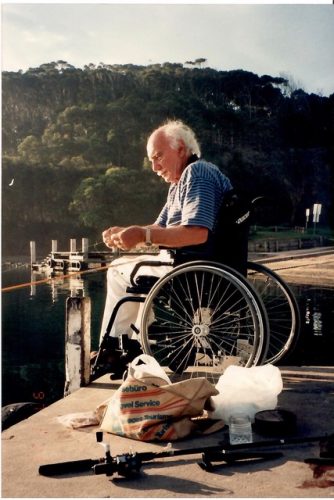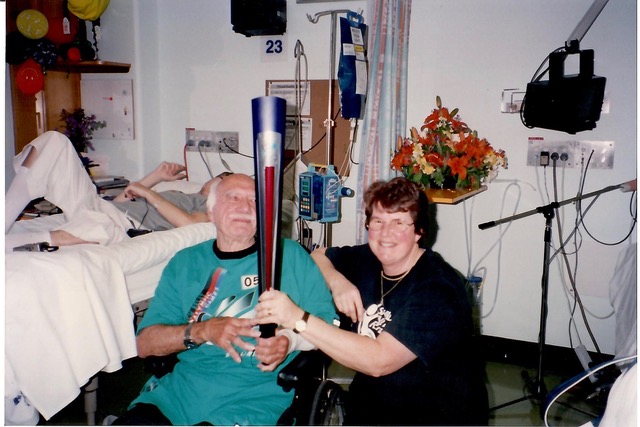Header photo courtesy Kaad family album
This month, as we approach ANZAC Day, we wanted to take some time to celebrate one of our lifetime members and personal heroes, Fred Kaad. On February 9 this year, we were saddened to hear of Fred’s passing. Aged 100, Fred was a friend to many and an inspiration to all. We’d like to remember Fred by sharing some of his most remarkable achievements over his life.
When he was only 19, Fred, like many Australians, was suddenly faced with the prospect of fighting in a World War. After his parents refused to sign the papers allowing him to be posted overseas, Fred joined the Citizen Military Forces (CMF), known now as the Australian Army Reserve.
After serving two years, Fred was medically discharged from the CMF following a concussion. Bearing his trademark determination and confidence, Fred soon enlisted in the Australian Imperial Force (AIF), not disclosing his history with the CMF or the fact he’d been discharged medically unfit.
Not long into his time with the AIF, Fred was sent to Papua New Guinea (PNG), where he served the remainder of WWII predominantly as a lieutenant, sparking a long time love and association with the country.
The Japanese laid down their arms on the 13th of September 1945, and six months later, the Army released Fred to return to civilian life.
The war was over, but by now, Papua New Guinea was in Fred’s blood.
Three weeks after being released from the army, not wanting to leave a country that had become his home, Fred became a Patrol Officer in the PNG Administration. He was promoted, only one month later, to District Labour Officer in Samarai.
It was here that Fred met June Grosvenor, the love of his life. The two married in Sydney in 1948 before returning to their lives in Papa New Guinea.
The following 15 years saw Fred work diligently across PNG, becoming a District Commissioner and helping to create the foundations for a future nation. In 1962, Fred was appointed Secretary to the Select Committee on Political Development in PNG. In 1964, as a result of the Committee’s report that Fred wrote, PNG gained universal suffrage, followed by the House of Assembly of Papua New Guinea. On Independence, the House of Assembly became the Papua New Guinea Parliament.
In 1963, Fred was appointed Executive Officer for the Commission on Higher Education, where he wrote the Commissions report, which ultimately lead to the establishment of the University of Papua New Guinea in 1965.
In addition to his administrative duties, Fred involved himself strongly in developing sporting bodies. He had been a schoolboy athletics champion, was elected president of the Amateur Athletic Union of PNG and, in 1961, represented PNG at a meeting in Noumea which led to the inauguration of the South Pacific Games. The games have been held every four years since 1964. In 1962 he captained the PNG athletics team at the British Empire Commonwealth Games in Perth.
In 1964, Fred was living in Papua New Guinea when his life changed forever.
Fred was involved in a plane crash in the Ramu Valley. Ray Jaensch, the pilot, didn’t survive, and Fred suffered extensive burns and damage to his spinal cord, leaving him with the effects of the paraplegia he would live with throughout his life.
Fred also had the complication of hyperesthesia, a strange syndrome affecting the tactile sensitivity of his upper legs extending down to his knees, so that for the rest of his life, he experienced severe pain when his knees were touched, even my trousers or a breeze. But despite this bizarre pain, he retained his gregarious, generous and irrepressible nature.
Forever the motivator, Fred gave a speech in Canberra not long after his accident where he declared:
‘One day, I will get back as a District Commissioner. I am like MacArthur. I shall return.’
While in rehab, Fred commenced postgraduate study by correspondence with the University of Queensland. He later continued his study at the University of New England, where he completed his final year of a master’s degree, at the age of 51, as a live-in student with the young undergraduates. He was the first student permanently in a wheelchair to study and live for a full academic year in a university college.

In 1980, nearly 20 years after the plane crash, on the PNG’s Government’s recommendation, the Queen made Fred an Officer of the Order of the British Empire ‘for public service and services to the training of Papua New Guineans’, service that was ongoing after the crash. Remarkably, in the same year, he was made a fellow of the Australian College of Education for his services to education in Australia. These honours speak to his determination and strength of character.
All his life, he was involved in the community
Fred worked with sporting organisations in PNG, disability organisations and had a long history with the Papua New Guinea Association of Australia (PNGAA). His association with ParaQuad NSW was also very long-standing. Fred served on the Board from 1966 – 1988, as a Director and for many years as Vice President. Two highlights of his work with ParaQuad were fundraising for Ferguson Lodge, the first purpose-building accommodation for people with spinal cord injury in NSW, and the introduction of the Mobility Allowance in 1983. He was also a keen member of the Ferguson Lodge Fishing Club and would always look forward to joining the residents on day trips to accessible fishing sites.

ParaQuad NSW, the Papua New Guinea Association of Australia, Sydney High School Old Boys Union, and the Australian College of Education, awarded Fred with lifetime memberships. However, after all his success, it was perhaps the year 2000 which stood out most for him. Not only did the Governor-General award Fred the Australian Sports Medal, but Fred was selected to be a Paralympic Games torchbearer to carry the flame in a relay from a ceremony at Parliament House. On his segment of the relay, after being handed the torch (and a big kiss) by Ann Saunders, television journalist ad Seven Network news presenter, he was ‘ecstatic with happiness and as proud as punch’ as he carried the torch high above his head.
We look back on Fred’s life with pride and amazement. Fred’s enthusiasm, happiness and encouragement were contagious to all who met and knew him. Fred used his 100 years to great effect for the benefit of those around him and beyond. It was not without personal hardship and tragedy, but it was a life of remarkable achievement and contribution.
